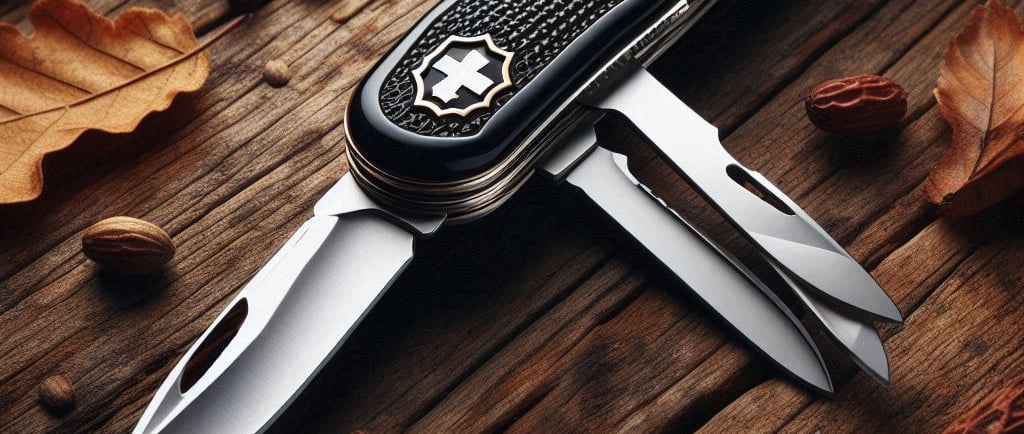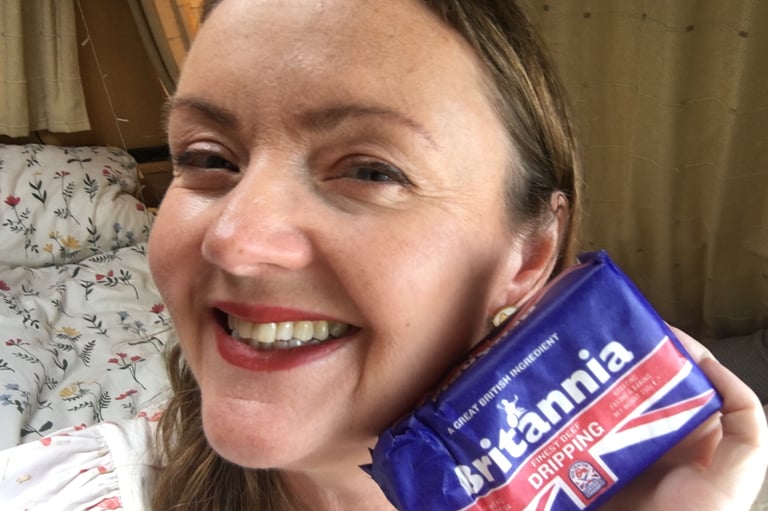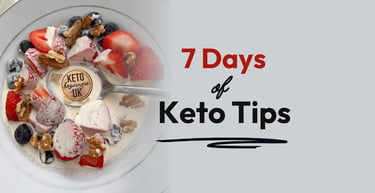The Multifunctional Life
A solid strategy for choosing what to keep and what to let go of.
Lisa Beaumont, Ketogentility.co.uk
7/19/20247 min read


(This article may contain links to suggested products, some available in my shop, and some on Amazon. As an Amazon Associate I earn from qualifying purchases.)
Understanding the Multifunctional Life
William Morris famously quipped, "Have nothing in your houses you don't know to be useful, or believe to be beautiful." And I think that's a step in the right direction, but not anywhere near far enough. I say:
Keep nothing in your life that doesn't delight at least one of your senses, and isn't at least dual-purpose.
Anything else is a missed opportunity at best; an energy suck at worst.
It may sound like a tall-order but using this as a guidepost sets you up for optimal living if not outright wild success.
Of course, what's delightful and useful to you is entirely subjective. Case in point, I recently sold my Le Creuset citrus juicer because I was fed up of the cumbersome thing taking up an inordinate amount of space and not even having the basic function of separating juice from pips which forced me to mess around with a spoon every time I used it. As a replacement, I paid £1 in a cheap shop for a cute little glass squeezer with a pleasing yellow lid that does its job beautifully, is easy to clean, and fits with no struggle in the cupboard and fridge.
Feeding Our Diverse Roles
Each of us juggles multiple roles and responsibilities. Personally I'm a dog-mom, teacher, writer, singer-in-a-choir, business-owner, friend and neighbour, chief cook and bottle-wash, and the steward of my own well-being. And of course you've got your own diverse set of roles - what are they? It'll be useful to you to take a moment to note them down to keep in mind as we move through the article.
The concept of a multifunctional life involves intentionally curating what we allow into our lives based on the value it brings in terms of joy, purpose, and meaning to as many of our various roles as possible. It's about making conscious decisions about what to keep, what to add more of, and what to let go of, so we can lead a simpler yet more fulfilling life that meets the needs of all of our roles.
Assessing People in Your Life
One of the most critical aspects of a multifunctional life is evaluating the relationships we maintain. Ask yourself, do these individuals bring joy, support, and positivity to any of my roles? For instance, if a friend always encourages your business ventures they likely add significant value. On the other hand, if someone plays the victim and brings constant negativity, it might be time to reconsider their role in your life.
Someone may add to one of your roles but subtract from another, so you have to weigh up the nett effect on your life as a whole.
Some may say it's cruel to cut people off if they're struggling, and I agree to a certain point. Everyone encounters difficulty from time to time and helping others through a tough phase can be the right thing to do - if it is just a phase and not their entire, permanent mode of being. It's okay to distance yourself from relationships that don't serve your well-being; you're under no obligation to stick around people who are bringing you down. Besides, you're not helping them either if you're enabling their dysfunction; you're exacerbating it.
If you have space in your life for one or two more positively mutual relationships - it's a two-way street, remember - then get out there and mingle, keeping in mind what you can bring to one another's tables.
Evaluating Places and Spaces
Where you spend your time greatly impacts your overall happiness and productivity. Reflect on the environments you frequent. Do your home and/or workspace inspire creativity and focus and relaxation, or do they feel cluttered, chaotic, and distracting?
If a place brings you peace and helps you recharge, you can consider spending more time there. Conversely, if a particular setting consistently causes stress or discomfort, think about reducing your time in that space, making changes to improve it, or switching it out completely.
Decluttering Your Physical and Digital Spaces
Tyler Durden's statement that the things you own end up owning you is true. Every item we own, be it physical or digital, takes upkeep. Sometimes that just means simply moving it out of the way to reach the thing behind it, or occasionally cleaning it - but all that maintenance multiplied by the number of items in our home takes quite a lot of compounded work and it's important to ask, "Is it worth the effort?"
I recently heard a YouTuber say that her husband won't allow surplus things to be stored in their home. He told her that items they don't need yet should be stored at the shop and they can go and pick them up and pay for them when needed. I love that. All that money sitting in unused stuff that could be earning interest elsewhere, and all that storage space crammed with stuff could be precious breathing space.
Clutter is a thief of peace which is why I advocate for frequent decluttering sessions. I regularly hold up my items and ask, when was the last time I actually used this? Could I live without it? If I know I wouldn't really miss it, I consider binning, selling or donating.
Selling or donating, rather than throwing away, helps us to let go of items we still believe have value; when you know someone else is going to appreciate it, it's so much easier to move it along. When a buyer on Vinted messages about an item you wore once, "It's perfect for my holidays!" it's a good feeling.
If you're a reader, books can be a huge issue as they are easy to become emotionally attached to. If you want to whittle down your vast collection, keep those you 100% cannot part with under any circumstances, and donate the rest, knowing they'll benefit someone else, and that you can always pick up another copy if you feel called to read it in the future.
Other things to consider are unsubscribing from channels and newsletters that no longer interest you, and organising your files to reduce overwhelm. By simplifying your physical and digital environments, you create more white space in your life.
Choosing Multipurpose Items
A strategy I use personally to give myself white space is choosing items that have more than one use.
Most of my footwear is in a neutral shade so that it has the best chance of going with whatever I'm wearing. It's the same with my handbags - other than travel luggage and a bright red backpack for hikes and picnics, I have three bags: a large tote that folds up, a small-medium brown leather handbag, and a small black evening bag with a gold metal strap. This way I don't have to agonise over what goes with what. Pick the bag and shoes for the occasion, and everything matches.
I try to ensure the majority of my clothes suit my lifestye and are therefore interchangably suitable as loungewear, workwear, supermarket-wear, and dog-walking gear. I try to pick pyjamas that aren't too recognisable as pyjamas so I can just throw on a jacket to take the dog out first thing. Clothes with pockets are the best as they negate the need to take a bag. Plus of course I have a couple of nicer outfits for special occasions.
I've even begun to wear functional jewellery; as well as being decorative, this lovely bangle for sale here on my site is made from metals that have been suggested offer positive health properties - although for legal reasons I can't claim any of that to be the case. ;) It meets my prerequistes for an item to keep: it delights a sense as it looks great, and is useful in two ways in that I personally believe the metals may have helpful properties, and the inspirational message engraved inside it gives me a positive boost each time I read it.
You may or may not be shocked to discover that I don't use shower gel, toothpaste, nor deodorant. Instead I use a simple pot of bicarbonate of soda from Lidl for a variety of such purposes, plus a simple homemade "soap" I make by boiling soap nuts. And I moisturise with a block of beef dripping from Tesco.
Traditional products I do use are a charcoal soap for handwashing in the bathroom - the essential oil scent is a pleasant addition to the bathroom, and the formula cleans well but doesn't dry out my skin like most soaps do. And I use a citrus roll-on essential oil blend that doubles up as a personal scent and mood-enhancer.
Balancing Work and Leisure
Work - or contribution, as I prefer to think of it - paid or unpaid, is an essential part of a fulfilled life. Evaluate the work you do: does it provide a sense of purpose and satisfaction? If it's only about money or obligation (i.e. has a singular use) and isn't providing delight, then it's worth getting the book I wrote a few years ago that will help you explore new opportunities or projects that align more closely with your values.
Additionally, prioritise hobbies and activities that bring joy and relaxation. Whether it's painting, hiking, reading, or simply the quality of the coffee that you drink, every small pursuit can significantly enhance your quality of life and should not be overlooked. Personally I enjoy a good hike as it meets so many of my needs: the views provide sensory delight, I get some exercise and socialisation, and my energetic dog gets worn out.
In conclusion, living a multifunctional life involves making thoughtful choices about the people, places, work, activities, and things in your life. By benchmarking everything in your life to the Keep nothing in your life that doesn't delight at least one of your senses, and isn't at least dual-purpose standard you can create a more fulfilling existence. Remember, it's a continuous process of evaluation and adjustment to ensure your life aligns with your values and aspirations.
Did you like this piece of writing? Do share it with others!
Where would you like to go next?


Lisa@ketogentility.co.uk
© 2025. All rights reserved.


